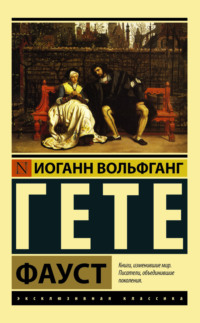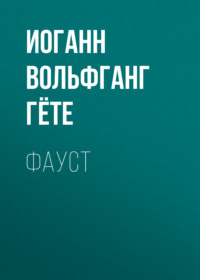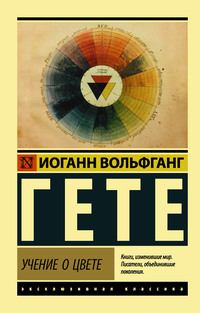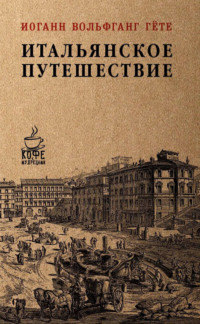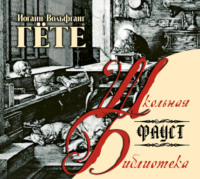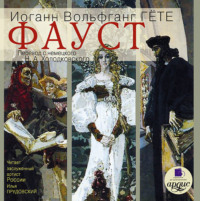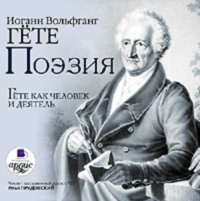
Letters from Switzerland and Travels in Italy
This conversation excited again the question I had so often asked myself: whether I ought to give up all idea of visiting Malta. The difficulties and dangers, however, which had been already well considered, remained the same; and we, therefore, resolved to engage our vetturino to take us to Messina.
But, in the meantime, a strange and peculiar whim was to determine our future movements. For instance, in my travels through Sicily, I had, as yet seen but few districts rich in corn: moreover, the horizon had everywhere been confined by nearer or remoter lines of hills, so that the island appeared to be utterly devoid of level plains, and I found it impossible to conceive why Ceres had so highly favoured this island. As I sought for information on this point, I was answered that, in order to see this, I ought, instead of going to Syracuse, to travel across the island, in which case I should see corn-fields in abundance. We followed this temptation, of giving up Syracuse, especially as I was well aware that of this once glorious city scarcely anything but its splendid name remained. And, at any rate, it was easy to visit it from Catania.
Caltanisetta, Saturday, April 28, 1787.
At last, we are able to understand how Sicily gained the honourable title of the Granary of Italy. Shortly after leaving Girgenti, the fertile district commenced. It does not consist of a single great plain, but of the sides of mountains and hills, gently inclined towards each other, everywhere planted with wheat, or barley which present to the eye an unbroken mass of vegetation. Every spot of earth suited to these crops is so put to use and so jealously looked after, that not a tree is anywhere to be seen. Indeed, the little villages and farm-houses all lie on the ridges of the hills, where a row of limestone rocks, which often appear on the surface, renders the ground unfit for tillage. Here the females reside throughout the year, busily employed in spinning and weaving; but the males, while the work in the fields is going on, spend only Saturday and Sunday at home, staying away at their work during the other days, and spending their nights under temporary straw-sheds.
And so our wish was gratified – even to satiety; we almost wished for the winged car of Triptolemus to escape from the monotony of the scene.
Sicily – Caltanisetta
After a long drive under the hot sun, through this wilderness of fertility, we were glad enough when, at last, we reached the well-situated and well-built Caltanisetta; where, however, we had again to look in vain for a tolerable inn. The mules are housed in fine vaulted stables; the grooms sleep on the heaps of clover which are intended for the animals' food; but the stranger has to look out for and to prepare his own lodging. If, by chance, he can hire a room, it has first of all to be swept out and cleaned. Stools or chairs, there are none: the only seats to be had are low little forms of hard wood: tables are not to be thought of.
If you wish to convert these forms into a bedstead, you must send to a joiner, and hire as many planks as you want. The large leathern bag, which Hackert lent me, was of good use now, and was, by way of anticipation, filled with chaff.
But, before all things, provisions must be made for your meals. On our road we had bought a fowl; our vetturino ran off to purchase some rice, salt, and spice. As, however, he had never been here before, he was for a long time in a perplexity for a place to cook our meal in, as in the post-house itself there was no possibility of doing it. At last, an old man of the town agreed for a fair recompense to provide us with a hearth together with fuel, and cooking and table utensils. While our dinner was cooking, he undertook to guide us round the town, and finally to the market-house, where the principal inhabitants, after the ancient fashion, met to talk together, and also to hear what we or other strangers might say.
We were obliged to talk to them of Frederick the Second, and their interest in this great king was such that we thought it advisable to keep back the fact of his death lest our being the bearers of such untoward news should render us unwelcome to our hosts.
Caltanisetta, Saturday, April 28, 1787.
Geology by way of an appendix! From Girgenti, the muschelkalk rocks; there also appeared a streak of whitish earth, which afterwards we accounted for: the older limestone formation again occurs, with gypsum lying immediately upon it. Broad flat vallies; cultivated almost up to the top of the hill-side, and often quite over it: the older limestone mixed with crumbled gypsum. After this appeal's a looser, yellowish, easily crumbling, limestone; in the arable fields you distinctly recognize its colour, which often passes into darker, indeed occasionally violet shades. About half-way the gypsum again recurs. On it you see, growing in many places, a beautiful violet, almost rosy red sedum, and on the limestone rocks a beautiful yellow moss.
This very crumbling limestone often shows itself; but most prominently in the neighbourhood of Caltanisetta, where it lies in strata, containing a few fossils; there its appearance is reddish, almost of a vermilion tint, with little of the violet hue, which we formerly observed near San Martino.
Pebbles of quartz I only observed at a spot about half-way on our journey, in a valley which, shut in on three sides, is open towards the east, and consequently also towards the sea.
On the left, the high mountain in the distance, near Camerata, was remarkable, as also was another looking like a propped up cone. For the greatest half of the way not a tree was to be seen. The crops looked glorious, though they were not so high as they were in the neighbourhood of Girgenti and near the coast; however, as clean as possible. In the fields of corn, which stretched further than the eye could reach, not a weed to be seen. At first we saw nothing but green fields, then some ploughed lands, and lastly, in the moister spots, little patches of wheat, close to Girgenti. We saw apples and pears everywhere else; on the heights, and in the vicinity of a few little villages, some fig-trees.
These thirty miles, together with all that I could distinguish, either on the right or left of us, was limestone of earlier or later formations, with gypsum here and there. It is to the crumbling and elaboration of these three together by the atmosphere that this district is indebted for its fertility. It must contain but very little sand, for it scarcely grates between the teeth. A conjecture of mine with regard to the river Achates must wait for the morrow to confirm or not.
Sicily – Castro Giovanni
The valleys have a pretty form, and although they are not flat, still one does not observe any trace of rain gullies; merely a few brooks, scarcely noticeable, ripple along them for all of them flow direct to the sea. But little of the red clover is to be seen; the dwarf palm also disappears here, as well as all the other flowers and shrubs of the south-western side of the island. The thistles are permitted to take possession of nothing but the way-sides, every other spot is sacred to Ceres. Moreover, this region has a great similarity to the hilly and fertile parts of Germany – for instance, the tract between Erfurt and Gotha, especially when you look out for points of resemblance. Very many things must combine together in order to make Sicily one of the most fertile regions of the world.
On our whole tour, we have seen but few horses; ploughing is carried on with oxen; and a law exists which forbids the killing of cows and calves. Goats, asses, and mules, we met in abundance. The horses are mostly dapple grey, with black feet and manes; the stables are very splendid, with well-paved and vaulted stalls. For beans and flax the land is dressed with dung; the other crops are then grown after this early one has been gathered in. Green barley in the ear, done up in bundles, and red clover, in like fashion, art: offered for sale to the traveller as he goes along.
On the hill above Caltanisetta, I found a hard limestone with fossils: the larger shells lay lowermost, the smaller above them. In the pavement of this little town, we noticed a limestone with pectinites.
April 28, 1787.
Behind Caltanisetta, the hill subsided suddenly into many little valleys, all of which pour their streams into the river Salso. The soil here is reddish and very loamy; much of it unworked; what was in cultivation bore tolerably good crops, though inferior to what we had elsewhere seen.
Castro Giovanni, Sunday, April 29, 1787.
To-day we had to observe still greater fertility and want of population. Heavy rains had fallen, which made travelling anything but pleasant, as we had to pass through many streams, which were swollen and rapid. At the Salso, where one looks round in vain for a bridge, I was struck with a very singular arrangement for passing the ford. Strong powerful men were waiting at the river-side; of these two placed themselves on each side of a mule, and conducted him, rider, baggage and all, through the deep part of the river, till they reach a great bank of gravel in the middle; when the whole of the travellers have arrived at this spot, they are again conducted in the same manner through the second arm of the stream, while the fellows, by pushing and shoving, keep the animal in the right tract, and support him against the current.
On the water-side I observed bushes, which, however, do not spread far into the land. The Salso washes down rubbles of granite – a transition of the gneiss, and marble, both breccian and also of a single colour.
We now saw before us the isolated mountain ridge on which Castro Giovanni is situate, and which imparts to the country about it a grave and singular character. As we rode up the long road which traverses its side, we found that the rock consisted of muschelkalk; large calcined shells being huddled together in heaps. You do not see Castro Giovanni until you reach the very summit of the ridge, for it lies on the northern declivity of the mountain. The singular little town, with its tower, and the village of Caltaseibetta, at a little distance on the left, stand, as it were, solemnly gazing at each other. In the plains we saw the bean in full blossom; but who is there that could take pleasure in such a sight? The roads here were horrible, and the more so because they once were paved, and it rained incessantly. The ancient Enna received us most inhospitably, – a room with a paved floor, with shutters and no window, so that we must either sit in darkness or be again exposed to the beating rain, from which we had thought to escape by putting up here. Some relics of our travelling provisions were greedily devoured; and the night passed most miserably. We made a solemn vow never to direct our course again towards never so mythological a name.
Monday, April 30, 1787.
The road leading from Castro Giovanni was so rough and bad, that we were obliged to lead our horses down it. The sky before us was covered with thick and low clouds, while high above them a singular phenomenon was observable. It was striped white and grey, and seemed to be something corporeal; but how could aught corporeal get into the sky? Our guide enlightened us. This subject of our amazement was a side of Mount Ætna, which appeared through the opening clouds. Snow alternating with the crags formed the stripes – it was not, however, the highest peak that we saw.
Sicily – Castro Giovanni
The precipitous rock on which the ancient Enna was situated lay behind us; and we drove through long, long, lonely valleys: there they lay, uncultivated and uninhabited, abandoned to the browsing cattle, which we observed were of a beautiful brown colour, not large, short-horned, clean-limbed, lank and lively as deer. These poor cattle had pasturage enough, but it was greatly encroached upon, and in some parts wholly taken possession of by the thistles. These plants have here the finest opportunities possible to disperse their seed and to propagate their kind; they take up an incredible space, which would make pasture land enough for two large estates. As they are not perennial, they might, if mowed down before flowering, be easily eradicated.
However, after having thus seriously meditated an agricultural campaign against the thistles, I must, to my shame, admit they are not altogether useless. At a lonely farm-house where we pulled up to bait, there were also stopping two Sicilian noblemen, who on account of some process were riding straight across the country to Palermo. With amazement we saw both these grave personages standing before a patch of these thistles, and with their pocket-knives cutting off the tops of the tall shoots. Then holding their prickly booty by the tips of their fingers, they pealed off the rind, and devoured the inner part with great satisfaction. In this way they occupied themselves a considerable time, while we were refreshing ourselves with wine (this time it was unmixed) and bread. The vetturino prepared for us some of this marrow of thistle stalks, and assured us that it was a wholesome, cooling food; it suited our taste, however, as little as the raw cabbage at Segeste.
On the Road, April 30, 1787.
Having reached the valley through which the rivulet of S. Pacio winds its way, we found the district consisting of a reddish, black, and crumbly limestone: many brooks, a very white soil, a beautiful valley, which the rivulet made extremely agreeable. The well compounded loamy soil is in some places twenty feet deep, and for the most part of similar quality throughout. The crops looked beautiful; but some of them were not very clean, and all of them very backward as compared with those on the southern side. Here there are the same little dwellings – and not a tree, as was the case immediately after leaving Castro Giovanni. On the banks of the river plenty of pasture land, but sadly confined by vast masses of thistles. In the gravel of the river we again found quartz, both simple and breccian.
Molimenti, quite a new village, wisely built in the centre of beautiful fields, and on the banks of the rivulet S. Paolo. The wheat in its neighbourhood was unrivalled: it will be ready to cut as early as by the 20th May. In the whole district I could not discover as yet a trace of volcanic influence: even the stream brings down no pebbles of that character. The soil is well mixed, heavy rather than light, and has on the whole a coffee-brown and slightly violet hue. All the hills on the left, which inclose the stream, are limestone, whose varieties I had no opportunity of observing. They, however, as they crumble under the influence of the weather, are evidently the causes of the great fertility that marks the district throughout.
Tuesday, May 1, 1787.
Through a valley which, although by nature it was throughout alike destined to fertility, was unequally cultivated, we rode along very moodily because among so many prominent and irregular shapes not one appeared to suit our artistic designs. Kniep had sketched a highly interesting outline, but because the foreground and intermediate space was thoroughly revolting, he had with a pleasant joke appended to it a foreground of Poussin's, which cost him nothing. However, they made together a very pretty picture. How many "picturesque tours" in all probability contain half truths of the like kind.
Our courier, with the view of soothing our grumbling humour, promised us a good inn for the evening. And in fact, he brought us to an hotel which had been built but a few years since on the road side, and being at a considerable distance from Catania, cannot but be right welcome to all travellers. Por our part, finding ourselves, after twelve days of discomfort, in a tolerable apartment, we were right glad to be so much at our ease again. But we were surprised at an inscription pencilled on the wall in an English character. The following was its purport: – "Traveller, whoever you may be, be on your guard against the inn known in Catania by the sign of the Golden Lion; it is better to fall into the claws of all the Cyclops, Sirens, and Scylla together than to go there." Although we at once supposed that the good-meaning counsellor had no doubt by his mythological figures magnified the danger, we nevertheless determined to keep out of the reach of the "Golden Lion," which was thus proclaimed to us to be so savage a beast. When, therefore, our muleteer demanded of us where we would wish to put up in Catania, we answered anywhere but at the Golden Lion! Whereupon he ventured to recommend us to stop where he put up his beasts, only he said we should have to provide for ourselves just as we had hitherto done.
Towards Hybla Major pebbles of lava present themselves, which the stream brings down from the north. Over the ferry you find limestone, which contains all sorts of rubble, hornstone, lava, and calx; and then hardened volcanic ashes, covered over with calcareous tufa. The hills of mixed gravel continue till you come near to Catania, at and beyond which place you find the lava flux, from Ætna. You leave on the left what looks like a crater. (Just under Molimenti the peasants were pulling up the flax.) Nature loves a motly garb; and here you may see how she contrives gaily to deck out the dark bluish-gray lava of the mountains. A few seasons bring over it a moss of a high yellow colour, upon which a beautiful red sedum grows luxuriantly, and some other lovely violet flowers. The plantations of Cactus and the vine-rows bespeak a careful cultivation. Now immense streams of lava begin to hem us in. Motta is a beautiful and striking rock. The beans are like very high shrubs. The fields vary very much in their geological features; now very gravelly, now better mixed.
Sicily – Molimenti
The vetturino, who probably had not for a long time seen the vegetation of the south-eastern side of the island, burst into loud exclamations about the beauty of the crops, and with self complaisant patriotism demanded of us, if we ever saw such in our own country? Here, however, every thing is sacrificed to them; you see few if any trees. But the sight that most pleased us was a young girl, of a splendid but slight form, who, evidently an old acquaintance, kept up with the mule of our vetturino, chatting the while, and spinning away with all the elegance possible.
Now yellow tints begin to predominate in the flowers. Towards Misterbianco the cactuses are again found in the hedges; but hedges entirely of this strangely grown plant become, as you approach Catania, more and more general, and are even still more beautiful.
Catania, May 2, 1787.
In our auberge we found ourselves, we must confess, most uncomfortable. The meal, such as our muleteer could alone furnish, was none of the best. A fowl stewed in rice would have been tolerable, but for an immoderate spice of saffron, which made it not more yellow than disagreeable. The most abominable of bad beds had almost driven me a second time to bring out Hackert's leathern bag, and we therefore next morning spoke on this subject to our obliging host. He expressed his regret that it was not in his power to provide better for us; "but," he said, "there is, above there, a house where strangers are well entertained, and have every reason to be satisfied."
Saying this, he pointed to a large corner house, of which the part that was turned towards us seemed to promise well. We immediately hurried over to it, and found a very testy personage, who declared himself to be a waiter, and who in the absence of the landlord showed us an excellent bedroom with a sitting-room adjoining, and assured us at the same time that we should be well attended to. Without delay we demanded, according to our practice, what was the charge for dinner, for wine, for luncheon, and other particulars. The answers were all fair; and we hastily had our trifles brought over to the house, and arranged them in the spacious and gilded buffets. For the first time since we left Palermo, Kniep found an opportunity to spread out his portfolio, and to arrange his drawings, as I did my notes. Then delighted with our fine room, we stept out on the balcony of the sitting-room to enjoy the view. When we got tired of looking at and extolling the prospect, we turned to enter our apartment, and commence our occupations, when, lo! over our head was a large golden lion, regarding us with a most threatening aspect. Quite serious we looked for a moment in one another's face, then smiled, and laughed outright. From this moment, however, we began to look around us to see whether we could discover any of these Homeric goblins.
Sicily – Catania
Nothing of the kind was to be seen. On the contrary, we found in the sitting-room a pretty young woman, who was playing about with a child from two to three years old, who stood suddenly still on being hastily scolded by the vice-landlord: – "You must take yourself off!" he testily exclaimed; "you have no business here." "It is very hard," she rejoined, "that you drive me away; the child is scarcely to be pacified in the house when you are away, and the signori will allow me, at least while you are present, to keep the child quiet." The husband made no reply, but proceeded to drive her away; the child at the door cried most miserably, and at last we did most heartily wish that the pretty young madam had stayed.
Warned by the Englishman, it was no art to see through the comedy: we played the Neulinge, the Unschuldige– he, however, with his very loving paternal feelings, prevailed very well. The child in fact was evidently very fond of him – and probably the seeming mother had pinched him at the door to make him cry so.
And so, too, with the greatest innocence possible she came and stayed with him as the man went out to deliver for us a letter of introduction to the Domestic Chaplain of Prince Biscari. She played and toyed with the child till he came back bringing word from the Abbé that he would come himself and talk with us on the matter.
Catania, Thursday, May 3, 1787.
The Abbé, who yesterday evening came and paid his respects to us, appeared this morning in good time, and conducted us to the palace, which is of one story, and built on a tolerably high socle. First of all we visited the museum, where there is a large collection of marble and bronze figures, vases, and all sorts of such like antiques. Here we had once more an opportunity of enlarging our knowledge; and the trunk of a Jupiter, which I was already acquainted with through a cast in Tischbein's studio, particularly ravished me. It possesses merits far higher than I am able to estimate. An inmate of the house gave us all necessary historical information. After this we passed into a spacious and lofty saloon. The many chairs around and against the walls indicated that a numerous company was often assembled here. We seated ourselves in hope of a favourable reception. Soon afterwards two ladies entered and walked several times up and down the room. From time to time they spoke to each other. When they observed us, the Abbé rose, and I did the same, and we both bowed. I asked, Who are they? and I learned that the younger lady was daughter of the Prince, but the elder a noble lady of Catania. We resumed our seats, while they continued to walk up and down as people do in a market-place.
We were now conducted to the Prince, who (as I had been already given to understand) honoured me with a singular mark of his confidence in showing me his collection of coins, since, by such acts of kindness, both his father and himself had lost many a rare specimen; and so his general good nature, and wish to oblige, had been naturally much contracted. On this occasion I probably appeared a little better informed than formerly, for I had learned something from the examination of Prince Torremuzza's collection. I again contrived to enlarge my knowledge, being greatly helped by Winckelmann's never-failing clues, which safely led the way through all the different epochs of art. The Prince, who was well informed in all these matters, when he saw that he had before him not a connoisseur, but an attentive amateur, willingly informed me of every particular that I found it necessary to ask about.
After having given to these matters, considerable, but still far less time than they deserved, we were on the point of taking our leave, when the Prince conducted us to the Princess, his mother, in whose apartments the smaller works of art are to be seen.


